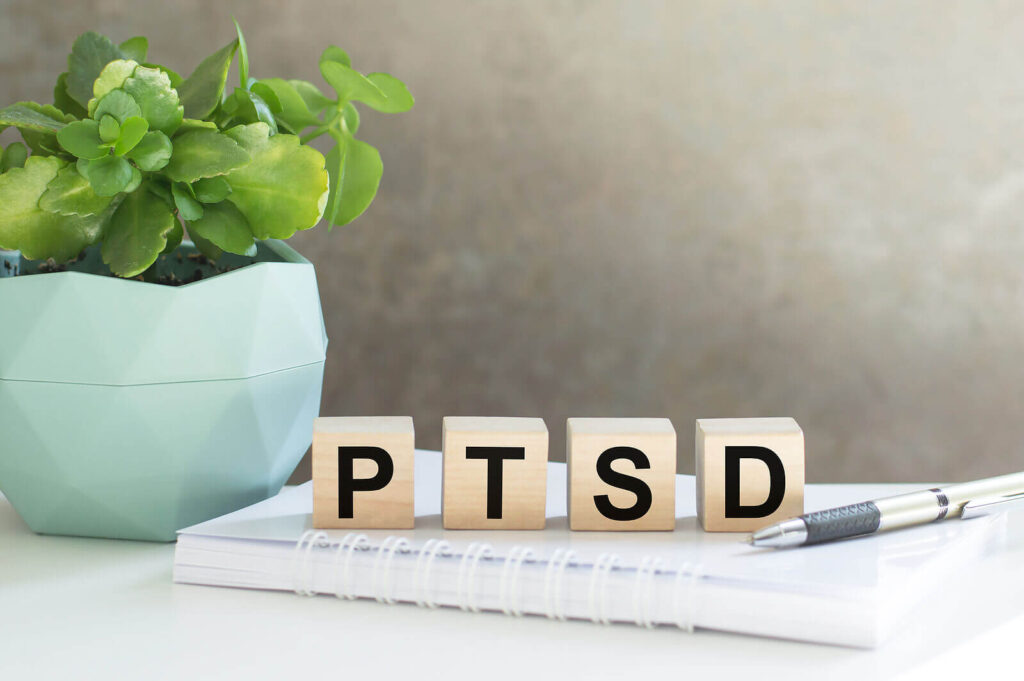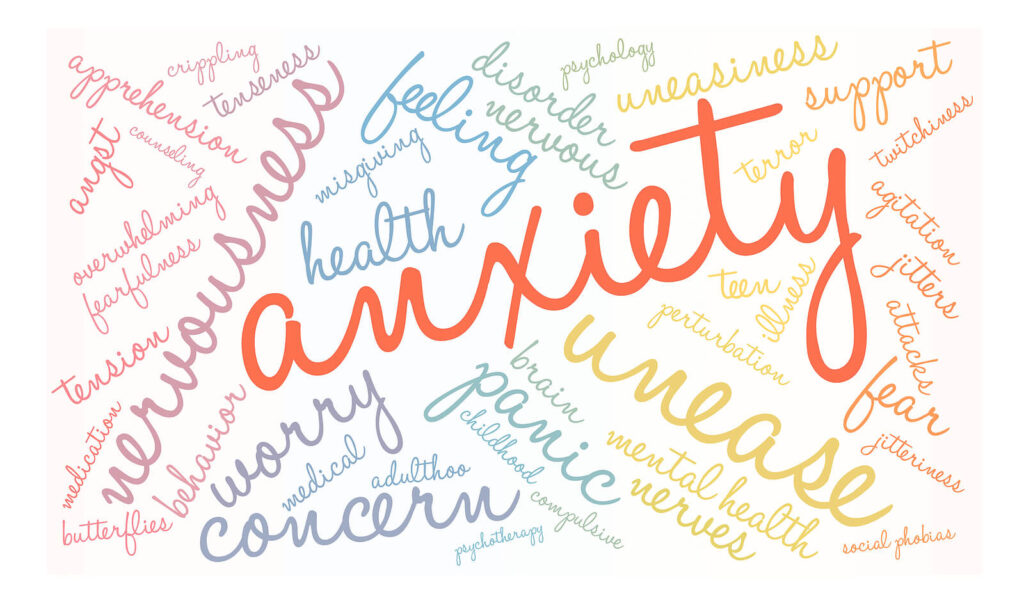OCD
Obsessive-Compulsive Disorder (OCD) is a mental health disorder characterized by repetitive, intrusive thoughts, images, or urges (obsessions) that cause significant distress and anxiety. To alleviate this distress, individuals engage in ritualistic behaviors or mental acts (compulsions) to try and neutralize the obsessions. OCD affects people of all ages, genders, and backgrounds, and it can be a chronic and debilitating condition if left untreated.
The exact cause of OCD is not fully understood, but it is believed to be a combination of genetic, neurological, and environmental factors. Research suggests that imbalances in brain chemicals, such as serotonin, play a role in its development. Additionally, a history of trauma or stressful life events may increase the risk of developing OCD in susceptible individuals.
What is OCD?

Obsessions are intrusive, unwanted thoughts or mental images that are difficult to control. Common obsessions include fears of contamination, harm coming to oneself or loved ones, and doubts about whether one has completed a task correctly. These obsessions are distressing and often irrational, but individuals with OCD find it challenging to dismiss or ignore them. Some individuals may also experience obsessions surrounding sexuality, rumination over objectively neutral events from their past, or the status of their social connections, among various other themes.
Compulsions, on the other hand, are repetitive behaviors or mental acts aimed at reducing the distress caused by obsessions. For example, someone with contamination obsessions might engage in excessive handwashing or cleaning rituals. A person with obsessive doubts may repeatedly check locks, appliances, or other objects to ensure they are secure. Compulsions are intended to prevent the feared consequence, but they provide only temporary relief and reinforce the cycle of OCD.
How Does OCD Affect Someone’s Life?
OCD can significantly impair a person’s daily life. The time-consuming nature of rituals can interfere with work, school, and relationships. The constant anxiety and fear can lead to exhaustion and depression. Furthermore, individuals with OCD often recognize the irrationality of their obsessions and compulsions, which only increases their distress. This is why treatment of OCD must focus on more than just awareness around thoughts, feelings, and behaviors.
Treatment for OCD: Anxiety Therapy, Medications, & More
Effective treatments for OCD include cognitive-behavioral therapy (CBT for anxiety) and medication. CBT involves exposure and response prevention (ERP), where individuals gradually confront their fears without engaging in the corresponding compulsion. This process helps them learn that their anxieties decrease over time without performing the rituals. Medications, such as selective serotonin reuptake inhibitors (SSRIs), can also help manage the symptoms of OCD.
Support from family and friends can be instrumental in the recovery process as well. Patience, compassion, and refraining from enabling compulsive behaviors are vital in assisting a person with OCD. Educating oneself about the condition can help loved ones offer better support. While reaching out for support can be challenging sometimes, building a support system is a crucial aspect of managing any mental health condition.
It Can Get Better With the Right Anxiety Therapy & OCD Treatment
While there is no “cure” for OCD, many individuals can lead fulfilling lives with proper management tools and treatment. Some people may experience periods of remission or reduced symptoms over time. Others may find that their symptoms persist but become more manageable with ongoing support and understanding around their needs.
OCD is a complex mental health disorder characterized by distressing obsessions and repetitive, ritualistic compulsions. It affects people from all walks of life and can significantly impact their daily functioning and well-being. Early intervention, appropriate treatment, and support from loved ones are crucial in helping individuals with OCD lead fulfilling lives and manage their symptoms effectively. Raising awareness and reducing the stigma surrounding mental health can contribute to better understanding and support for those living with OCD. You can absolutely live a life you love while experiencing the realities of an OCD diagnosis.

PTSD
Post-Traumatic Stress Disorder (PTSD) is a mental health condition that can develop after experiencing or witnessing a traumatic event. It can affect anyone, regardless of age, gender, or background. PTSD is characterized by a range of symptoms that persist for an extended period, causing significant distress and impairment in daily functioning.
The traumatic events that trigger PTSD may include natural disasters, serious accidents, physical or sexual assault, combat exposure, or other life-threatening situations. Not everyone who experiences trauma develops PTSD, but those who do often experience intense feelings of fear, helplessness, or horror during the event.
It’s important to remember that whatever your definition of trauma is is personal to you and your lived experience. While not all traumatic experiences lead to an official PTSD diagnosis, this does not invalidate the pervasive and complicated effects of experiencing trauma.
PTSD symptoms can be categorized into four main clusters:
1. Intrusion. Intrusive memories of the traumatic event, including flashbacks, nightmares, and distressing thoughts. The person may feel as if they are reliving the trauma.
2. Avoidance. Avoiding reminders or triggers associated with the traumatic event. This can include avoiding certain places, people, or activities, which can lead to social withdrawal.
3. Negative alterations in mood and cognition. Individuals with PTSD may experience a persistent negative outlook on life, difficulty remembering aspects of the traumatic event, feelings of detachment, and a diminished interest in activities they once enjoyed.
4. Hyperarousal. This involves heightened physical and emotional arousal, often leading to irritability, difficulty sleeping, hypervigilance, and exaggerated startle response.
The Impact of PTSD Symptoms on Someones Life
The impact of PTSD on an individual’s life can be severe. It can disrupt personal relationships, interfere with work or school performance, and lead to a range of physical health problems. Substance use and abuse may also be used as a coping mechanism to numb the emotional pain associated with PTSD.
Can Anxiety Therapy Really Help PTSD?
Treatment for PTSD typically involves a combination of trauma and anxiety therapy, medication, and support from loved ones. Cognitive-behavioral therapy (CBT) is commonly used to help individuals process their traumatic experiences, identify and change negative thought patterns, and develop coping strategies. Eye Movement Desensitization and Reprocessing (EMDR) is another effective therapeutic approach for some individuals and can be explored with professionals who specialize in this type of treatment.
Medications, such as antidepressants or anti-anxiety drugs, may be prescribed to alleviate symptoms like depression or sleep disturbances.
PTSD is a serious and complex condition that requires professional assistance. If you or someone you know is struggling with PTSD, it’s essential to seek help from a trained and understanding therapist. With appropriate support and treatment, many individuals can experience significant improvements in their symptoms and overall well-being. Early intervention and compassionate care are crucial for promoting healing and recovery.

Panic Disorder
Panic Disorder is a type of anxiety disorder characterized by recurrent and unexpected panic attacks. These episodes are intense periods of fear or discomfort that reach a peak within minutes. Panic attacks can occur out of the blue, without any apparent trigger, and often lead to a strong desire to escape or find safety. The fear of having future panic attacks can lead to significant changes in behavior as individuals try to avoid situations or places where they fear an attack might happen, which may eventually lead to agoraphobia (when the intense fear of leaving home and experiencing the world traps us inside to maintain “safety”).
During a panic attack, people may experience a combination of physical, emotional, and cognitive symptoms. Physical symptoms can include a racing heart, chest pain, shortness of breath, dizziness, trembling, sweating, and a feeling of choking. Individuals may also feel detached from reality or themselves and may fear that they are losing control or going crazy. The intensity of the symptoms during a panic attack can be extremely distressing and overwhelming, often leading people to seek emergency medical help.
The Effect of Panic Disorders & What Causes Them
Panic Disorder can significantly impact a person’s daily life, social interactions, and overall well-being. The constant worry about having another panic attack can create a cycle of anxiety, where the fear of fear itself becomes a driving force in their lives.
The exact cause of Panic Disorder is not fully understood, but it is believed to be a combination of genetic, biological, and environmental factors. People with a family history of anxiety disorders may be at a higher risk of developing Panic Disorder.
Anxiety Therapy & Other Treatments for Panic Disorders
Effective treatments for Panic Disorder include anxiety therapy and medication. Cognitive-behavioral therapy (CBT) is particularly helpful in teaching individuals to recognize and challenge irrational thoughts and beliefs that contribute to their panic attacks. Through exposure therapy, individuals can gradually confront and desensitize themselves to feared situations, reducing avoidance behaviors.
Medications such as selective serotonin reuptake inhibitors (SSRIs) and benzodiazepines (anti-anxiety medication) may be prescribed to help manage symptoms. However, these drugs are typically used as short-term solutions due to the risk of dependence and potential side effects. Many doctors will prescribe medication “as needed” to those who experience Panic Disorder.
Lifestyle changes, such as regular exercise, stress reduction techniques, and avoiding stimulants like caffeine or nicotine, can also aid in managing panic symptoms.
Early intervention and appropriate treatment can lead to significant improvements in panic disorder symptoms. Seeking help from a mental health professional is essential for an accurate diagnosis and the development of an individualized treatment plan. With proper support and care, many individuals with Panic Disorder can experience a reduction in the frequency and intensity of panic attacks, allowing them to regain control of their lives and improve their overall well-being. Living your best life without debilitating fear is the main goal of panic disorder treatment.
Social Anxiety
Social anxiety, also known as social phobia, is a pervasive mental health condition characterized by an intense fear of social situations and a persistent concern of being negatively judged or evaluated by others. People with social anxiety often experience extreme self-consciousness and discomfort in everyday social interactions, which can significantly impair their ability to lead fulfilling lives.
The root cause of social anxiety is complex and can stem from a combination of genetic, environmental, and psychological factors. Traumatic social experiences, childhood adversity, or a family history of anxiety disorders may contribute to its development. Socially anxious individuals may excessively worry about being embarrassed, rejected, or humiliated in social settings, leading them to avoid such situations altogether. And as we know, the more we avoid and let fear take control, the stronger the fear becomes. This can lead to further isolation and ruptures in relationships.
Social Anxiety Symptoms & Its Effects On Every Day Life
Common symptoms of social anxiety include:
- rapid heartbeat
- sweating
- trembling
- nausea
- an overwhelming urge to escape from social gatherings.
The fear of public speaking, initiating conversations, or attending parties can be so distressing that it hinders personal and professional growth. As a result, people with social anxiety might withdraw from social opportunities, experience difficulty in forming relationships, and may struggle in academic or work settings.
This anxiety disorder can have a profound impact on one’s emotional well-being, leading to feelings of isolation, loneliness, and depression. Avoidance behaviors can perpetuate the cycle of anxiety, because as they offer relief in the moment, they reinforce the avoidance of social situations, exacerbating anxiety in the long term.
How do You Get A Handle on Social Anxiety
The journey to overcome social anxiety often involves psychotherapy, such as cognitive-behavioral therapy (CBT), exposure therapy, or mindfulness-based interventions. These therapeutic approaches aim to challenge negative thought patterns, build self-confidence, and gradually expose individuals to anxiety-provoking situations in a controlled manner. In severe cases, doctors may prescribe medications like antidepressants or anti-anxiety drugs to help manage the symptoms
Support from friends, family, or support groups can play a crucial role in the recovery process. Understanding, patience, and empathy are vital when interacting with someone dealing with social anxiety. Encouragement and providing gentle opportunities for social engagement can help individuals gradually face their fears and build their confidence.
Moreover, lifestyle modifications can complement therapeutic interventions in managing social anxiety. Examples of modifications include:
- regular exercise
- mindfulness practices
- stress reduction techniques
It is essential to acknowledge that overcoming social anxiety is a gradual process, and setbacks are common. The road to recovery may involve facing challenges. However with perseverance and the right support system, individuals can experience significant improvements in their ability to navigate social situations with reduced distress.
If you or someone you know is struggling with social anxiety, seeking professional help from a mental health expert can be so helpful. Early intervention and effective treatment can make a significant difference in enhancing quality of life and fostering a sense of connection with others. Remember, social anxiety is treatable, and seeking help is a courageous step towards a more fulfilling and enriched life.
Start Anxiety Therapy in Manhattan and overcome your OCD, PTSD, Panic Disorder, or Social Anxiety Today!
If you or someone you know is grappling with any of these types of anxiety, remember that help is available. Seeking support is a courageous step toward healing. Early intervention and effective treatment can make a significant difference in enhancing the quality of life. It can also foster a sense of connection with others. Reach out to Manhattan Wellness, engage in anxiety therapy, and build a support system. Your journey to well-being begins with a single step—take it today.
- Contact us or book your appointment to start anxiety therapy
- Get support from an anxiety therapist
- Start feeling better and build your support system
Other Counseling Services We Offer Besides Anxiety Therapy in Manhattan & Brooklyn
Starting the journey of personal growth and self-awareness is kind of like figuring your way through a maze, and having someone to help you out makes it way easier. At Manhattan Wellness, we’ve got different types of counseling to cover lots of stuff. Such as stress management, boosting how you see yourself, and even special help for college students. We’re also here for moms’ mental health, body image stuff, and the challenges that women face.
Let’s chat about making a path to a life that matches your dreams and welcomes positive changes.
